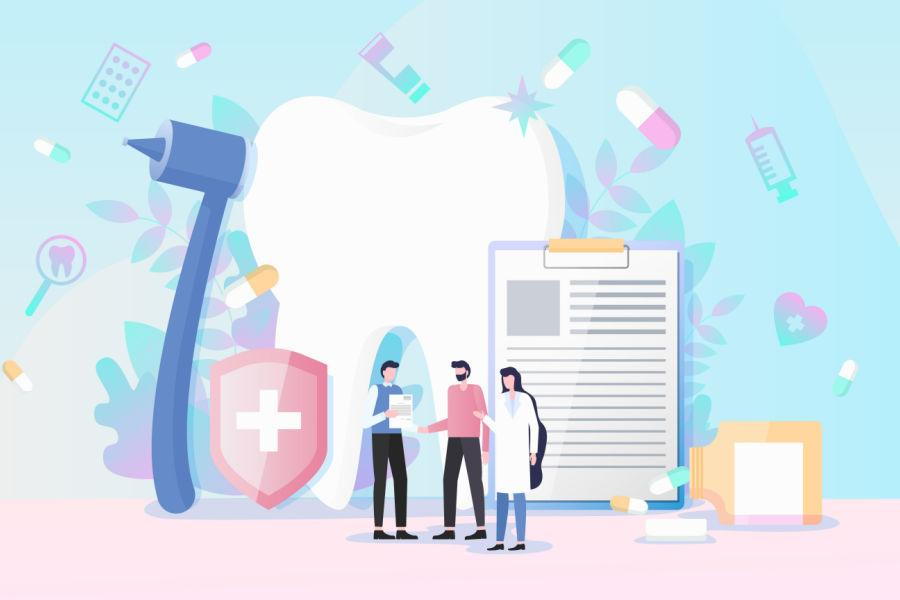
There’s no doubt that the less plaque a person has on their teeth, the whiter and brighter their smile can be. However, it is important to remember that a build-up of dental plaque is much more than just a cosmetic issue. Plaque can be detrimental to oral health, and it must be addressed and removed regularly.
What is dental plaque?
After we eat, tiny food particles are left inside the mouth. Until we brush our teeth, those particles can mix with saliva to form a fine, sticky substance that coats the surface of the teeth. This substance is called plaque.
Eating any type of food, even fruits and vegetables, can lead to plaque buildup, but sugary foods are the top culprit. This is because sugar is a carbohydrate. When carbohydrates join the natural bacteria that live in your mouth, lactic acid is formed. Plaque forms when lactic acid combines with food particles.
How does plaque affect oral health?
Tooth decay
The bacteria in dental plaque will continue to produce lactic acid over time. This acid can eat away at your tooth enamel, the thin outer layer that protects your teeth from wear and tear. Holes in the enamel (which are sometimes called dental caries) render a tooth vulnerable to cavities and other damage. Once the enamel has been penetrated, harmful acids and bacteria can cause the tooth to decay.
Tartar
If left unchecked, plaque can harden over time into a tough substance called tartar. Tartar is yellowish in appearance and tends to have an odor. In addition to looking unattractive, tartar can damage the teeth and lead to cavities. When it forms close to the gums, it can damage and irritate them, too.
Gum disease
Irritated, swollen gums can eventually develop gum disease. Gum disease occurs when inflammation causes pockets to form between the roots of the teeth and the gums. These pockets can fill with bits of food and other particles, inviting bacteria to take over. A bacterial infection of the gums can be painful and dangerous–it can even lead to tooth loss if left untreated.
How can I prevent plaque buildup?
The best way to avoid plaque buildup and its associated complications is to brush your teeth and floss routinely, per your dentist’s instructions. It is also important to schedule regular visits with your dentist, who can make sure that your mouth is healthy and free of plaque. Dental cleanings can reach spots of plaque that you might miss during your daily brushing and flossing.
Mindful eating can also benefit your oral health. Avoiding excessively sugary foods can help limit the amount of plaque that is able to form in your mouth between brushings.
Excellent Dental Care in Pleasanton
Mona Gokani, DDS, is pleased to provide high-quality dental care to the families of Pleasanton, CA and surrounding areas. If you have any questions about how we can help you and your loved ones achieve bright smiles full of healthy, plaque-free teeth, do not hesitate to contact us at (925) 462-1464.
